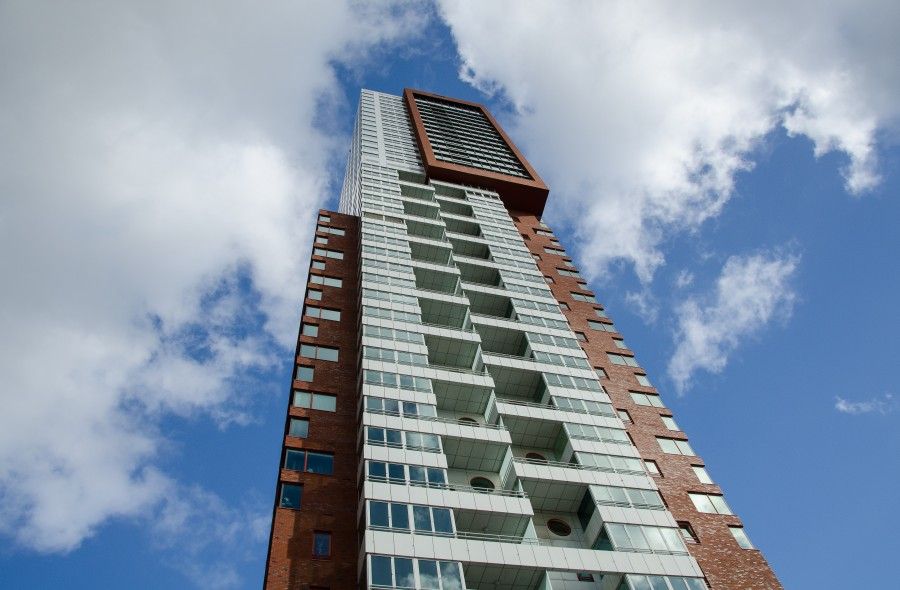
Article posted by
As the Netherlands’ second city, Rotterdam has long lived its life in the shadow of the historical and touristic delights of Amsterdam.
Seen as the unfashionable, industrialised neighbour to the south, Rotterdam’s importance has always centred around its port, today the largest in Europe. As such, it has often been regarded as lacking much of the edifying cultural richness of other major cities—missing the architectural and aesthetic charms of the likes of Venice or Paris.
But recently, Rotterdam’s stock has been on the rise as the city looks to define itself increasingly in its own terms.
Blank Canvas
With its vital strategic location, Rotterdam suffered particularly heavily throughout World War II, when German bombings razed more than 26,000 homes and 6,000 other buildings, essentially wiping out any sense of history in the city. This extensive remodelling, courtesy of the Luftwaffe, has left Rotterdam with very little in the way of preservation-worthy edifices. Rather than mourn the loss of so much architectural richness, the city has instead sold itself as something of a clean slate—a blank canvas for those at the very cutting edge to experiment with new types of construction and engineering innovation.
As Reinier de Graaf, one of the architects leading this new wave says, with typical Dutch stoicism, it is the ideal place to use as a testing ground for new ideas because “there’s not that much you can ruin”.
It is a strategy that is paying off in spades, with many crediting a progressive government policy for much of the success. The initiative allowed for Rotterdam’s more rundown and dilapidated houses to be sold at a conspicuously low price, on the understanding the new owners would invest an agreed-on amount on renovation work. It means there are entire neighbourhoods growing up around a community taking advantage of the policy to create diverse and interesting homes.
Investment in Innovation
Government programmes to reinvigorate the housing market are not the only way in which Rotterdam is investing in its future.
A former shipyard belonging to the Rotterdam Drydock Company has been transformed into RDM Rotterdam—an innovation campus and hotspot for a major influx of private sector start-up tech companies, as well as research initiatives and students from the Rotterdam University of Applied Sciences.
Regional authorities have also deliberately targeted leading companies in the design, engineering and architecture spaces and encouraged them to set up shop in the city, buoying up Rotterdam’s burgeoning reputation as a global pioneer—one that affords a great sense of intellectual freedom and improvisation.
It has given rise to not only an aura of liberal inventiveness but also a completely modernised skyline, what the Lonely Planet Guide described as ‘a veritable open-air gallery of Modern, Postmodern and contemporary construction’.

The Climate Change Challenge
Of course, with Rotterdam’s vulnerable geography, gathering together some of the world’s most ingenious thinkers could also be a matter of survival. With much of the city and the country, sitting below sea-level and gradually sinking, imaginative solutions to climate change challenges are essential. Rather than trying to fight a losing battle against the ever-higher tides and fiercer storms promised by Mother Nature in the near future, the Dutch are instead adapting to ways of living with the rising water.
Floating architecture is now a huge business in Rotterdam, with companies such as Beladon creating buoyant farms for food production—the Netherlands is the second biggest agro-exporter in the world.
Another development, slated for unveiling in the spring of 2019, is a floating community of Wikkelboats. Dubbed a carbon neutral village, the boats are based on the already popular Wikkelhouses, a modular construction made up of multiple layers of waterproof cardboard and will be moored in the city’s Rijnhaven area.
And in the former docks of the Feijenoord district, local firm Public Domain Architects are building the Harbour Loft Apartments, a pilot project of 18 floating homes which will rise and fall with the prevailing water levels.
Rotterdam has revived itself many times over the years, and much of its current metamorphosis is down to a dire need to survive a fast approaching threat. Fortunately, the last 20 years have seen a remarkable turnaround in the often-overlooked city, which now stands out on the very cutting edge of new technology and innovation.
We’re here if you need help defining a role or brief, specialist insight to help shape your ideas or expert help with your recruitment process. Just get in touch to arrange a conversation with one of the team or if you’re ready for us to find the perfect person for you, send us your brief.
If you’re looking for your ideal job send your CV to us to get started or search for the latest job vacancies and we’ll get the ball rolling.